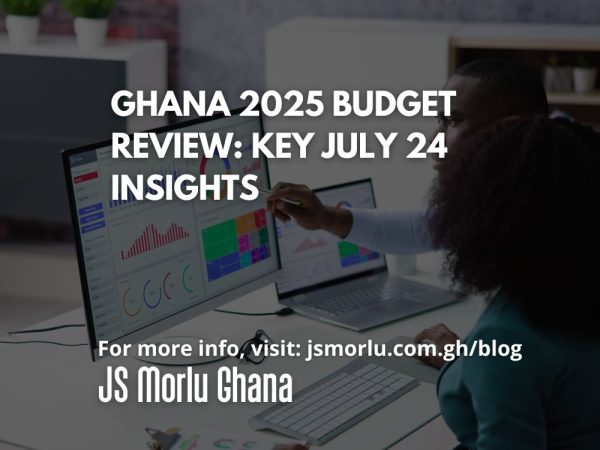A Fiscal Midpoint Check-In: What It Means
On Thursday, July 24, 2025, Ghana’s Finance Minister, Dr. Cassiel Ato Forson, will step before Parliament to deliver the 2025 Mid-Year Budget Review. This legally mandated address isn’t just another government speech, it’s a comprehensive economic dashboard for the nation, halfway through the fiscal year.
Under the Public Financial Management Act, 2016 (Act 921) and the Financial Administration Act, the Minister is required to update the legislature and by extension, the public, on:
- Economic performance for the first half of 2025
- Updated fiscal strategies for the remainder of the year
- Any proposed changes to revenue or expenditure plans
This review has implications for businesses, investors, policymakers, and everyday Ghanaians alike.
Key Areas to Watch
1. Revenue Collection & Fiscal Health
Expect a clear breakdown of how government revenues; taxes, levies, and grants, have performed versus the budgeted expectations. Minister Forson is also expected to speak on whether the country is on track to meet its end-of-year revenue targets.
2. Expenditure Adjustments
Will government spending be reined in, redirected, or expanded? Amid inflationary pressures and global financial shifts, any signal of cuts or boosts to public sector wages, infrastructure, or subsidies will matter.
3. Debt & Servicing
Ghana’s debt position has been under close international scrutiny. Look for updated figures on external and domestic debt, interest payments, and how the government plans to stay within borrowing limits.
4. Macroeconomic Trends
The Minister will likely unpack current economic indicators:
- Inflation trends and consumer pricing pressures
- Exchange rate stability and cedi performance
- GDP growth and productivity across key sectors
Economic Signals: Green Shoots or Mirage?
According to the Bank of Ghana, recent data suggests the economy is on a strong rebound:
- Real GDP grew 5.3% in Q1 2025, with notable expansion in agriculture and services
- Non-oil GDP saw a sharp 6.8% increase
- Private sector credit rose 19.9% year-over-year in April, up from 10.8% in 2024
- The Composite Index of Economic Activity posted a 4.4% increase in May, indicating solid momentum
Also notable: Ghana reported a trade surplus of $5.6 billion driven by gold and cocoa exports with a current account surplus of $3.4 billion.
Structural Reforms & IMF Commitments
This year’s mid-year update will also double as a status report to international stakeholders especially the International Monetary Fund (IMF). The Minister is expected to address:
- Progress made under Ghana’s IMF-supported program
- Fiscal discipline measures being implemented
- Ongoing structural reforms in taxation, digitalization, and debt transparency
These commitments are not just checkboxes, they influence credit ratings, investor sentiment, and Ghana’s ability to secure future financing.
Why This Matters for Stakeholders
Whether you’re a business owner, government contractor, non-profit, or a Ghanaian household, this review has real-world implications:
- Will taxes increase or decrease?
- Will government spending support or suppress economic activity in your sector?
- How will inflation forecasts affect cost of goods and services?
For professionals navigating contracts, budgets, or long-term planning, understanding the mid-year fiscal outlook is a strategic advantage.
Final Thoughts
The 2025 Mid-Year Budget Review is more than a procedural update it’s a fiscal mirror and policy pivot point. It offers insight into whether Ghana is steering a course of growth, austerity, or recalibration as global and local economic currents evolve.
Stay tuned for our follow-up analysis once the review is officially presented. We’ll break down what it means for our core clients from nonprofits managing grant budgets to small businesses adapting to inflation-sensitive supply chains.
